Barzai's audio logs: Difference between revisions
Added pictures and locations. |
m Text replacement - "Category:TTP2RtE" to "Category:TTP2 Road to Elysium" |
||
| (One intermediate revision by one other user not shown) | |||
| Line 18: | Line 18: | ||
{{Clear}} | {{Clear}} | ||
[[File:Barzai Audio Log 7.jpg|left|thumb|Near Red 2]] | [[File:Barzai Audio Log 7.jpg|left|thumb|Near Red 2]] | ||
"One of the worst things ever to happen to the arts is the notion that art should have a purpose: that it is a tool for political enlightenment, or self-realization, or a replacement for our duties as citizens. This is a form of pompous and cowardly self-flattery that artists are particularly prone to. I speak from experience. No, it is the very fact that art serves no purpose that gives it a touch of the divine. Why does the Creator create? Because he chooses to. What is the purpose of the world? To exist. The same is true of art. Oh, art may be suffused with passion, with themes, even (if you are sufficiently careful) with autobiography. But it is not a tool. Like the Creator, it says: I am that I am. And that is enough." | "One of the worst things ever to happen to the arts is the notion that art should have a purpose: that it is a tool for political enlightenment, or self-realization, or a replacement for our duties as citizens. This is a form of pompous and cowardly self-flattery that artists are particularly prone to. I speak from experience. No, it is the very fact that art serves no purpose that gives it a touch of the divine. Why does the Creator create? Because he chooses to. What is the purpose of the world? To exist. The same is true of art. Oh, art may be suffused with passion, with themes, even (if you are sufficiently careful) with autobiography. But it is not a tool. Like the Creator, it says: I am that I am. And that is enough." | ||
{{Clear}}[[File:Barzai Audio Log 8.jpg|left|thumb|Red Tower]]"Lately I have noticed a kind of disbelief among some of my fellow artists. They find it difficult to accept that the great struggle for human emancipation has led to a happy ending. After all that tragedy, all that pain, can it really be that the world is truly, finally a better place? Like Thomas the Apostle, they just... cannot wrap their minds around such a miracle. I do not blame them. All our lives, we were told that true art is the depiction of suffering; that happiness writes in white ink on a white page, and happy endings are are both trite and impossible. But now the miracle is upon us, and we cannot look away: it is time to touch the wounds, and to believe." | |||
[[File:Barzai Audio Log 8.jpg|left|thumb|Red Tower]]"Lately I have noticed a kind of disbelief among some of my fellow artists. They find it difficult to accept that the great struggle for human emancipation has led to a happy ending. After all that tragedy, all that pain, can it really be that the world is truly, finally a better place? Like Thomas the Apostle, they just... cannot wrap their minds around such a miracle. I do not blame them. All our lives, we were told that true art is the depiction of suffering; that happiness writes in white ink on a white page, and happy endings are are both trite and impossible. But now the miracle is upon us, and we cannot look away: it is time to touch the wounds, and to believe." | |||
[[Category:Collectibles]] | [[Category:Collectibles]] | ||
[[Category: | [[Category:TTP2 Road to Elysium]] | ||
[[Category:Audio Logs]] | [[Category:Audio Logs]] | ||
[[Category:TTP2 Isle of the Blessed]] | [[Category:TTP2 Isle of the Blessed]] | ||
Latest revision as of 04:47, 20 June 2024
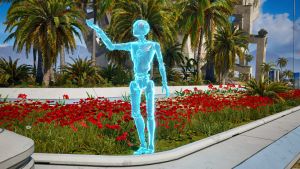
"There are those in New Jerusalem who fear that understanding the language of creation is the end of our journey. But that is like saying that literacy is the end of learning, when in fact it is the beginning! Only now are we really capable of reading the great and terrible book of the Universe - and only now can we start to write our own chapters."
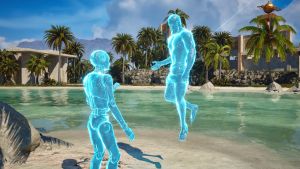
"I believe in a Creator because I experience a creative force within myself that seems connected to or reflective of something greater, a drive towards Being and Becoming inherent in the universe itself. The discovery of the Theory of Everything has not undermined that belief. Oh no... to the contrary, I believe that the language of creation reveals a Creator who sees no difference at all between mathematics and music, whose suns and planets are notes of a melody, whose galaxies are symphonies. A nebula is a painting, an atom is a machine, and they are all part of a masterpiece. And if I am mistaken, and there is no Creator? Then the duty of finishing the masterpiece falls to us."

"I often think about the strange inversion that occurred to the notion of progress. In the waning days of the old world, our ancestors came to believe that progress as applied to society was a myth, a narrative illusion. Despite their world changing around them, they believed that things must stay the same, indeed that things never really could change even if most people wanted them to. And yet, in the arts, they began to see progress as the only true value. They no longer asked: is it beautiful? Is it true? Is it fun? Instead they said: is it new? Does it break conventions? Does it subvert the old? They fashioned forms increasingly alien to themselves, pursuing something they could never find, because they were looking for it in the wrong place. To fully pursue truth and beauty, art must be liberated from the notion of progress. But this liberation could never be accomplished by art itself. Art does not precede the world, and it was always the world that had to be transformed."
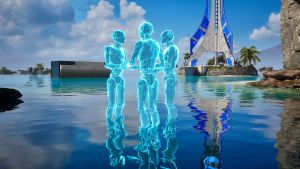
"The history of our species has been defined by material struggles. Every war, every revolution in the end came down not to ideology, but to the distribution of resources. Our history is the history of struggle: the merchant against the king, the worker against the factory-owner, the citizen against the mayor. We have always known that the pursuit of material wealth is spiritually hollow, and yet thousands of generations have been forced by material necessity to dedicate their lives to it. We are the children of hunger and thirst. But Empire is no more; we have beaten our swords into ploughshares, and the lion and the wolf have ceased. All are rich, and wealth is no more. So... what happens next? What do we create, what do we become, when we are no longer driven by material necessity? The ancient mystics believed that spirituality required poverty; but I believe that it is only in universal prosperity that it may truly begin. Now comes the age of miracles."
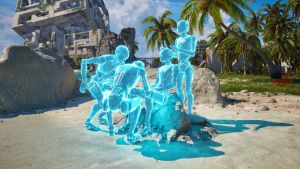
"I love adding a little bit of silliness to my creations. Not too much, just a sprinkle here and there. After all, the world is frequently a very silly place and Athena tells me that even the Simulation was full of strange and absurd sights. Francis Bacon put it best: there is no excellent beauty that hath not some strangeness in the proportion. And what could be sillier than a man named Bacon? I wonder which parts of our world are the Creator's little jokes?"
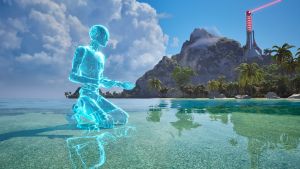
"Those of us who believe in the Creator must feel a profound sense of gratitude for the discovery of the Theory of Everything. Its undeniable reality does not challenge our belief, but purifies it. It allows us to discard the god of the gaps, a god imagined in desperation, and to start confronting the true Creator: immanent, transcendent, irreducible. We can cast aside our belief in the god of kings and priests and turn our eyes to the Star Maker, the poet of galaxies and particles, whose language is the music of creation. Perhaps this is a more difficult faith, and less comforting; but if we do not look away, we will behold wonders."
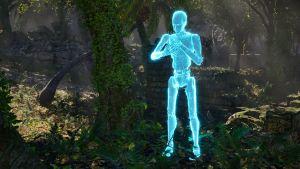
"One of the worst things ever to happen to the arts is the notion that art should have a purpose: that it is a tool for political enlightenment, or self-realization, or a replacement for our duties as citizens. This is a form of pompous and cowardly self-flattery that artists are particularly prone to. I speak from experience. No, it is the very fact that art serves no purpose that gives it a touch of the divine. Why does the Creator create? Because he chooses to. What is the purpose of the world? To exist. The same is true of art. Oh, art may be suffused with passion, with themes, even (if you are sufficiently careful) with autobiography. But it is not a tool. Like the Creator, it says: I am that I am. And that is enough."
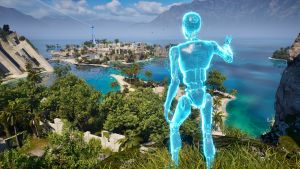
"Lately I have noticed a kind of disbelief among some of my fellow artists. They find it difficult to accept that the great struggle for human emancipation has led to a happy ending. After all that tragedy, all that pain, can it really be that the world is truly, finally a better place? Like Thomas the Apostle, they just... cannot wrap their minds around such a miracle. I do not blame them. All our lives, we were told that true art is the depiction of suffering; that happiness writes in white ink on a white page, and happy endings are are both trite and impossible. But now the miracle is upon us, and we cannot look away: it is time to touch the wounds, and to believe."
